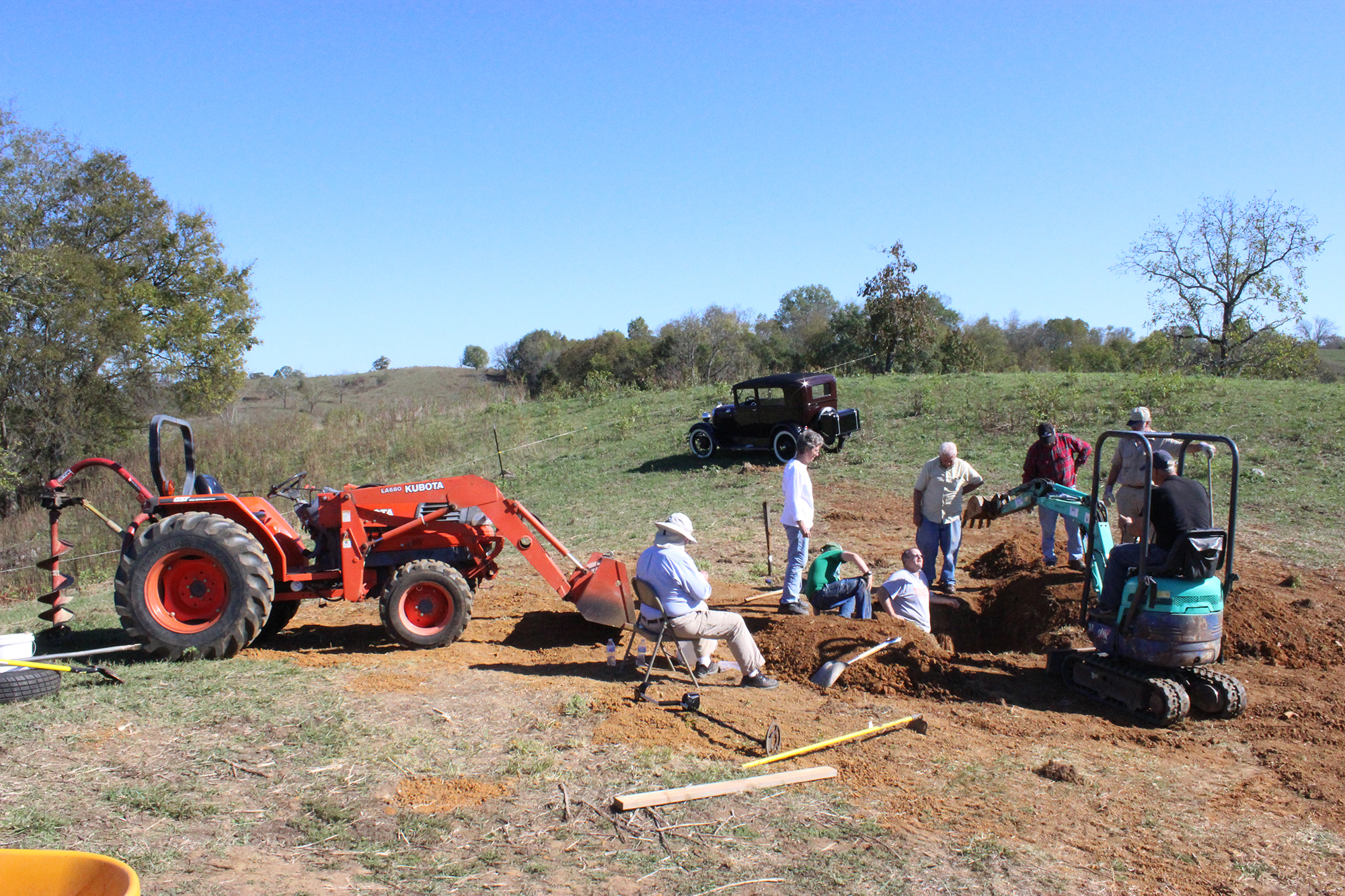
WHITESBURG, Tenn. (BP) — The remains of Tennessee pastoral pioneer Tidence Lane have been moved to the grounds of a church he pastored beginning in 1785.
 Around 1779, Lane helped found what some believe to be the first organized church of any denomination in Tennessee, Buffalo Ridge Baptist Church near Jonesboro, according to Albert Wardin’s book “Tennessee Baptists: A Comprehensive History, 1779-1999.” Six years later, Lane — a Revolutionary War veteran — became founding pastor of First Baptist Church in Whitesburg, Tenn., when the congregation was known as Bent Creek Baptist Church.
Around 1779, Lane helped found what some believe to be the first organized church of any denomination in Tennessee, Buffalo Ridge Baptist Church near Jonesboro, according to Albert Wardin’s book “Tennessee Baptists: A Comprehensive History, 1779-1999.” Six years later, Lane — a Revolutionary War veteran — became founding pastor of First Baptist Church in Whitesburg, Tenn., when the congregation was known as Bent Creek Baptist Church.
In a ceremony this fall, the Tennessee Baptist Mission Board joined with First Baptist Whitesburg for the reinterment of Lane’s remains on the church’s property. Several of Lane’s family members were reinterred along with him, Knoxville’s News Sentinel reported Nov. 26.
Richard Long, a descendant of Lane and pastor of Brown Springs Baptist Church in Mosheim, Tenn., was among the speakers at the Oct. 21 reinterment ceremony.
“God has worked all things out,” Long said. Lane and his family are “already home in heaven, but we’ve done something today that can commemorate the family. We know the ground in which their remains have been placed is going to be securely taken care of.”
Lane’s remains previously had been in a family cemetery in Morristown, located about two miles from the new burial site. His original burial site was given to his family as part of a land grant from the state of North Carolina for his service in the Revolutionary War.
Some consider Lane the father of church planting in Tennessee.
“It is good that we are honoring Tidence Lane,” said Randy Davis, executive director of the Tennessee Baptist Mission Board. “In looking forward to where we need to go, we need to look back and see the pioneering spirit of Tidence Lane and the Lane family. We too live in a state where there are great challenges and we need to forge ahead for the sake of the Gospel.”
According to historical accounts, Lane became a believer in 1743, soon after his marriage to Esther Bibber. Not long after his conversion, Lane sensed God’s call to preach.
Lane was living in North Carolina when he was called to ministry but moved to Tennessee due perhaps in part to anti-Baptist sentiment in the Tar Heel State. He was known to stand on a log to deliver his sermons.
He also was the first moderator of the first association of any denomination in the state, the Holston Baptist Association, which was organized Oct. 21, 1786 — 10 years before Tennessee was admitted into the Union.
Lane remained in the ministry for more than 60 years, continuing his work until his death on Jan. 30, 1806.
Lane and his wife Esther had nine children — seven sons and two daughters.
















